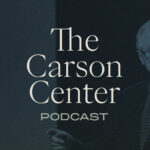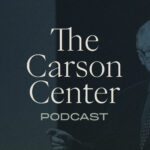A giant has left us. It is right and good that we should reflect on some of the things we’ve learned from him. His passing will call forth careful, informed obituaries, but this isn’t one of them. My more modest aim is to share a few memories so that Tim, like Abel, “still speaks, even though he is dead” (Heb. 11:3, NIV).
Before we met face-to-face, Tim and I collaborated on a book project. Under the title Worship by the Book, a group of pastors from different denominational backgrounds but all deeply committed to expository ministry wrote long chapters outlining what they thought corporate worship should look like, including sample services. Tim was our Presbyterian. About the time the book appeared (in 2002), Tim and I finally got together—first in London, where we were both speaking at the same conference, and then in New York. On the latter occasion, I was in Princeton for something or other, and Tim suggested I take the fast train into the city, where we enjoyed lunch at a sidewalk café.
Occasionally you meet a person with whom you form an instant bond. Tim was that kind of friend. Our conversations never faltered, as if we had to fumble around to find something to talk about. Theology, the state of the church, the strengths and failures of confessional evangelicalism, the urgent need for more expository preaching, analysis of current cultural and other trends in America and elsewhere, the meaning of certain biblical passages, spiritual disciplines—all of this and more captured our conversations, with time also allotted to our families.
Theology, the state of the church, expository preaching, current cultural trends, the meaning of certain biblical passages, spiritual disciplines—all of this and more captured our conversations.
I don’t think we ever talked about Wimbledon, the PGA Tour, the World Series, the Stanley Cup, or any of their cousins. Because Tim and Kathy lived in an apartment throughout their New York years, his conversation rarely strayed into gardens, birdsong, and flowers (contrast C. H. Spurgeon!). He never had a “Honey, do” list dictated by the backyard. Very often we talked about evangelism. About a dozen years ago, we got on the phone to compare notes: he had just returned from a mission at Oxford University, and I from Melbourne, Australia. This vista—how to become more fruitful in evangelism—was one of many fronts where he was far more gifted than I.
And that brings us to his formidably fruitful quarter-century in New York City. Many preachers have built megachurches; relatively few have done so with conversion growth in a highly secular and urban environment steeped in biblical illiteracy. Characteristically, Tim’s sermons were expository in shape and design: his first priority was to explain the text of Scripture. His textual unit was customarily a paragraph, a pericope, or a chapter, not a half-verse or an esoteric expression. He had an uncommon ability to tell old truths in a fresh way. Part of this was achieved by the space and energy he poured into his application of the text. Here he addressed not only individual sins and individual needs, but large-scale moral and cultural trends. Like an Old Testament prophet, he didn’t hesitate to address the culture and the nation and to call for justice as well as for contrition. He was jealous for the glory of God. He was quick to see how the trajectories of Scripture, the structure of biblical theology, drove thoughtful readers, again and again, back to the gospel. His preaching taught people how to read their Bibles. Although his New York congregation was largely well educated, his sermons were accessible to a broader range of people—doubtless the product of preaching for almost a dozen years in a somewhat less sophisticated congregation.
Like an Old Testament prophet, he didn’t hesitate to address the culture and the nation and to call for justice as well as for contrition. He was jealous for the glory of God.
His reading habits were prodigious. He found time to peruse many books on social analysis and current affairs, but he also devoured historical theology, commentaries, and broader literature. For a period of time, he worked his way (again!) through Calvin’s Institutes as part of his daily discipline. Anyone who heard him preach recognized how thoroughly he had digested C. S. Lewis—not because he wanted to mimic Lewis’s theology, but to learn from his images, his use of language, and his winsome apologetics. And all of this was set within the framework of his commitment to the Westminster Confession.
Some of his followers failed to see this: they were attracted to his cultural analysis and didn’t always discern how deeply his preaching was tethered to historic confessionalism. And all of this was allowed to marinate in a humble piety: his sermons were never so cerebral that arguments were allowed to displace confession, prayer, and a deep sense of the presence of God. Nowhere did this strand of Tim’s life and ministry become more poignant and penetrating than in the last years of his life when he was fighting cancer.
Most people who spent time with Tim thought they were among his best friends. Like the apostle John, who thought of himself as the one whom Jesus loved, not a few of Tim’s parishioners thought of themselves as particularly loved by their senior pastor. That is a common mark of a well-cared-for church. It’s also a measure of a pastor who never loses his cool: not once did I ever see Tim on the verge of “losing it,” still less of descending to catty or condescending assessments of others. More broadly, a large part of Tim’s attractiveness in his apologetic preaching turned on his ability to summarize an opponent’s argument with more accuracy and evenhandedness than the opponent could. The temptation to score points among one’s acolytes sometimes destroys our ability to win over an opponent. That is a pitfall into which I’ve never seen Tim stumble—not once. I wish I could make the same claim about myself.
His sermons were never so cerebral that arguments were allowed to displace confession, prayer, and a deep sense of the presence of God.
The same self-discipline and Christian courtesy invariably showed up amid controversy. The initial Council of what became The Gospel Coalition first met in 2005. Tim was asked to draft a document that we called our Theological Vision of Ministry (TVM). That proto-Council was made up of about 40 pastors, most of whom were strong-minded people with firm opinions about what changes should be introduced to our TVM. When one’s work is challenged, it’s very easy to retreat into irritable defensiveness, but I never saw a hint of it in Tim. One brother came in with 50 suggested improvements. Tim and this brother went through them one by one. In most cases Tim cheerfully acknowledged that the suggested change was an improvement, and thanked his critic for it. That attitude also gained him the credibility to push back, gently but firmly, when he felt the brother’s suggestion weakened the document—and in such cases he won the critic over. This exercise was not only important for the improving of TVM (and other documents) but became the hallmark of how we operated: we could and did disagree about many things, yet we learned from one another. The Council members became trusted friends; we spent a lot of time listening to and praying for one another. Half a dozen times, Tim said the TGC Council meeting was his favorite meeting of the year. A big part of the pull was the quality of the relationships that Tim’s own interactions had helped to train into the meetings.
A good sense of humor helps. During our second Council meeting (in 2006), Tim, who was sitting next to me, burst into a quiet chuckle and turned the screen of his laptop to me so that I could see it. Apparently in the course of discussion of some theological point or other, Tim had said something that surprised another Council member. That Council member sent an email to one of his assistants and summarized what Tim had said. The assistant posted it online: “Tim Keller has just said such-and-such.” One of Tim’s assistants spotted it online and fired off an email to his boss, still seated beside me: “Did you really say that?” The substance of what Tim had said took just under 15 minutes to get back to him. A lesser man would have been offended by what appeared to be a breach of confidence, but Tim thought it was funny.
Needless to say, we tightened up our commitments to privacy: what is said in our Council meetings is to stay in our Council meetings. (I’m not aware of any time in subsequent years when this simple rule was broken.) But Tim’s chuckle, shared with the group, helped us negotiate the moment. Tim was not much for telling jokes for the sake of telling jokes—but he had a very fine sense of the ridiculous.
It would be wrong for me to wrap up this memoir without saying something about Kathy, or, more precisely, Tim’s regard for Kathy. Of the many, many times when I have heard him preach, only very rarely has he completed the sermon without slipping in a reference to his wife. The same is true about my private conversations with Tim: it was unusual not to hear him spell out what Kathy thought or narrate something from her own experiences of grace and of ministry. Never, not once, did I hear a slighting comment about her, even in jest. Simply put, Tim loved and cherished his wife, and everyone knew it. They grew closer across the decades, and never more so than when Tim began to slide into his final illness. I am surely not the only one to whom Tim confided that during that illness, he and Kathy wept together more than they ever had and never loved each other more.
We have lost a giant.
“The Most Practical and Engaging Book on Christian Living Apart from the Bible”
 “If you’re going to read just one book on Christian living and how the gospel can be applied in your life, let this be your book.”—Elisa dos Santos, Amazon reviewer.
“If you’re going to read just one book on Christian living and how the gospel can be applied in your life, let this be your book.”—Elisa dos Santos, Amazon reviewer.
In this book, seasoned church planter Jeff Vanderstelt argues that you need to become “gospel fluent”—to think about your life through the truth of the gospel and rehearse it to yourself and others.
We’re delighted to offer the Gospel Fluency: Speaking the Truths of Jesus into the Everyday Stuff of Life ebook (Crossway) to you for FREE today. Click this link to get instant access to a resource that will help you apply the gospel more confidently to every area of your life.

































